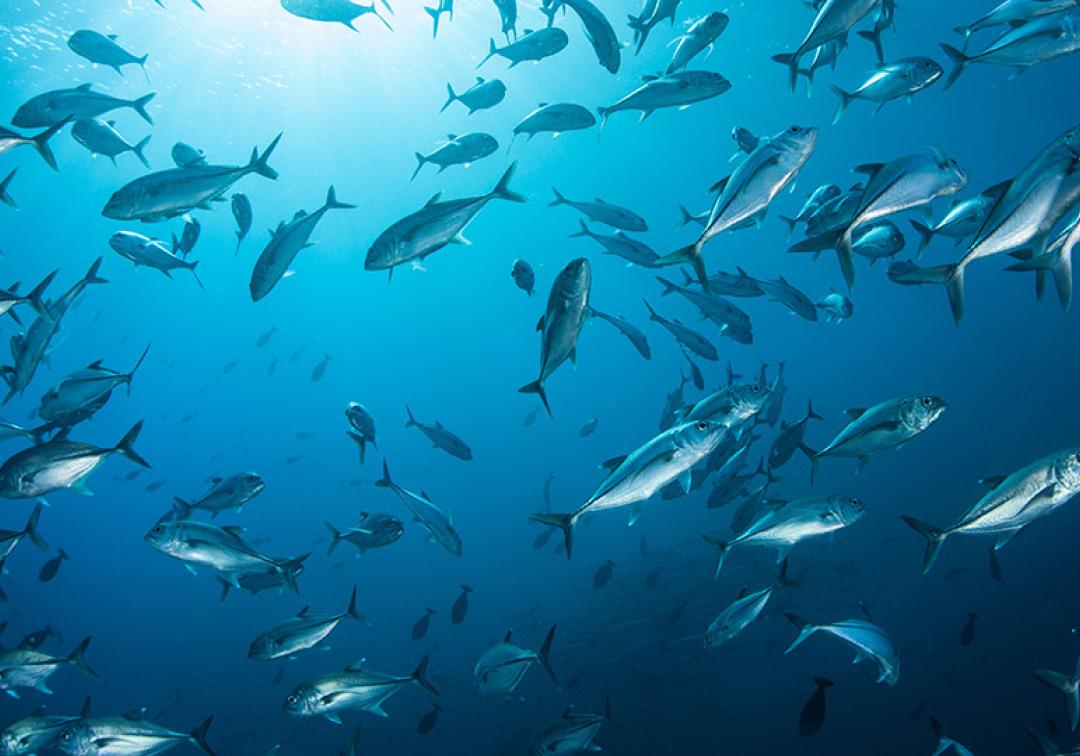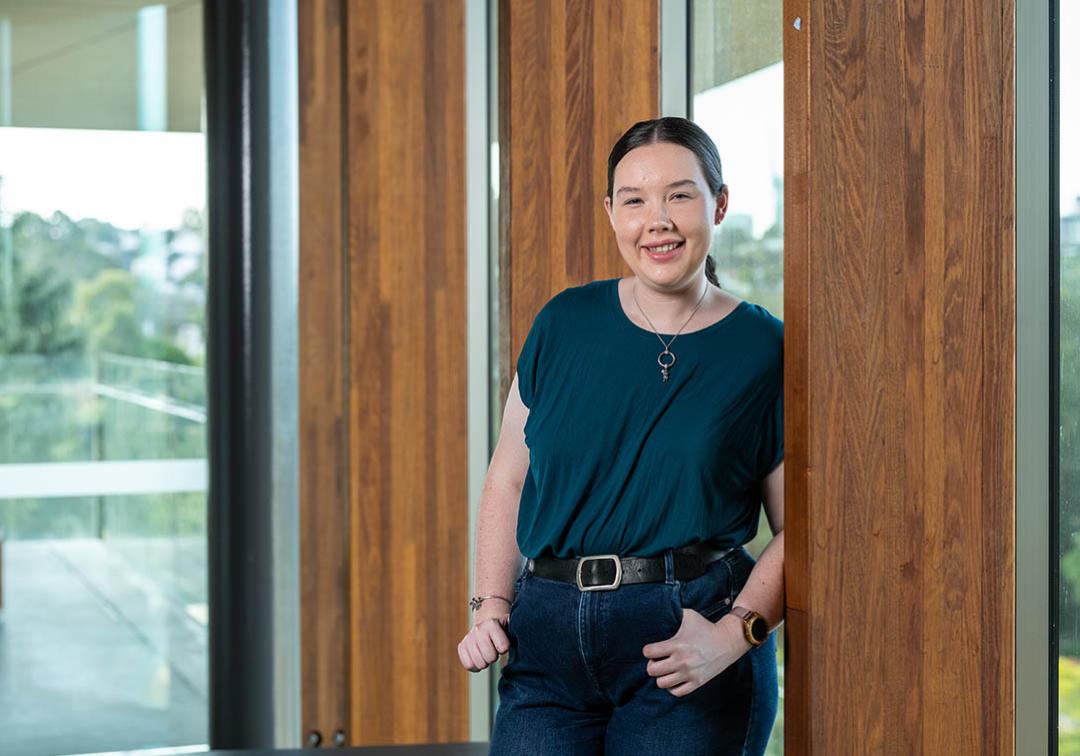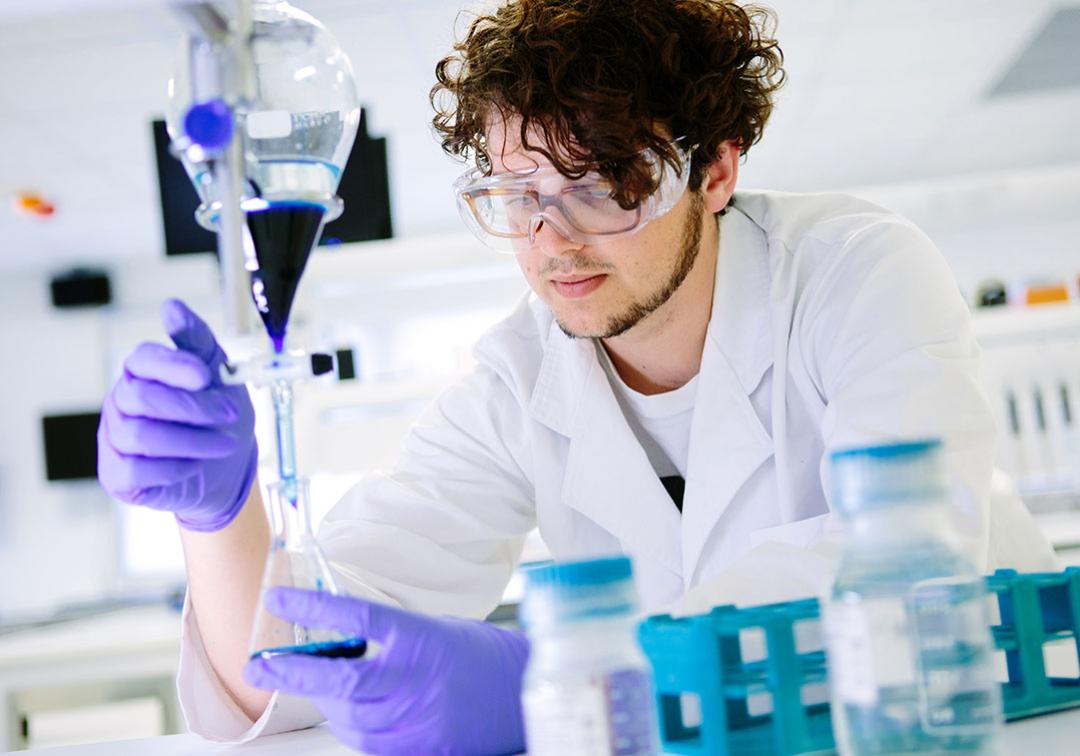
Graduate Certificate in Biotechnology
Overview
Expand your skill-set with advanced biotechnology courses and develop specialisations for further study.
The Graduate Certificate in Biotechnology program is designed for scientists who want to update their technical skills in core areas such as molecular biology, protein technology or bioinformatics, or acquire research laboratory experience.
For your half year of full-time (or part-time equivalent) studies, you'll select from more than 30 courses, allowing you to tailor your studies to suit your interests and career goals.
Choose electives in molecular biology, business planning, intellectual property, drug discovery and development, immunology and infectious diseases, and more.
With more than 400 biotechnology companies and some 600 medical device companies in Australia alone, UQ Biotechnology graduates are highly sought after for roles in health, agriculture, diagnostics, the environment, forestry, law and commerce.
Program highlights
- Learn from entrepreneurial scientists who have successfully commercialised their scientific discoveries.
- Take advantage of a large suite of electives in science that underpin new biotechnologies.
How you'll learn
Your learning experiences are designed to best suit the learning outcomes of the courses you choose.
- Lectures
- Tutorials
- Laboratory work
What you'll study
At UQ, degrees are called 'programs' and subjects are called 'courses'. Here's a sample of the courses you could study in this program:
- Quality Management Systems in Biotechnology
- Biologics
- Issues in Biotechnology
- Business Planning in Biotechnology
Career possibilities
Postgraduate study can take you anywhere. Here are some of the careers you could be on your way to:
- Nanotechnology and biosensor application specialist
- Diagnostic test designer
- Business plan analyst
- Pharmaceutical developer
- University researcher
- Venture capital consultant
- Plant breeding, engineering, cropping or horticulture specialist
- Plant and animal geneticist
- Quality control manager
- Regulatory affairs manager
Graduate salary
Science and mathematics (postgraduate)
compared.edu.au
Events
See all events
30 June
Queensland Biology Winter School, Year 11
Stories
See all stories
Uni life
What’s it like to study health technology and practice as a postgraduate?
5-minute read

UQ people
Fighting fire with science: new tech to protect firefighters
6-minute read
Stories
See all stories
Uni life
What’s it like to study health technology and practice as a postgraduate?
5-minute read

UQ people
Fighting fire with science: new tech to protect firefighters
6-minute read
Entry requirements
Entry requirements
To be eligible for entry, you'll need:
- a bachelor's degree (or equivalent) in any discipline, or
- 2 years full-time equivalent, relevant work experience in biomedical science, biotechnology, science, bioinformatics, pharmacy or engineering.
You must have a grade point average (GPA) of 4.5 on a 7-point scale in your previous qualification.
- a bachelor's degree (or equivalent) in any discipline, or
- 2 years full-time equivalent, relevant work experience in biomedical science, biotechnology, science, bioinformatics, pharmacy or engineering.
You must have a grade point average (GPA) of 4.5 on a 7-point scale in your previous qualification.
Related programs
Depending on your previous qualifications and current goals, you might want to consider
one of these related programs:
English language requirements
IELTS overall 6.5; reading 6; writing 6; speaking 6; listening 6. For other English Language Proficiency Tests and Scores approved for UQ
TOEFL iBT (including Paper Edition) - Overall 87, listening 19, reading 19, writing 21 and speaking 19.
PTE Academic - Overall Score of 64 and 60 in all sub bands.
BE - A minimum overall grade of 4 plus a minimum grade of C in all macro skills.
CES - Overall 176 and 169 in all sub bands.
OET is not accepted.
There are other ways to meet the English language requirements. For some programs, additional conditions apply.
Student visas
International students who are accepted into full-time study in the Graduate Certificate in Biotechnology are eligible to apply for an Australian student visa (subclass 500).
There are a number of requirements you must satisfy before a visa is granted, including the Genuine Student (GS) requirement.
Fees and Scholarships
Indicative annual fee
Approximate yearly cost of tuition (8 units). Your fees will vary according to your selected courses and study load. Fees are reviewed each year and may increase.
$4,400
2024
$4,400
2024
Approximate yearly cost of tuition (8 units). Your fees will vary according to your study load. Fees are reviewed each year and may increase.
AUD $24,080
2024
AUD $24,080
2024
Government assistance
Financial aid
As an international student, you might be eligible for financial aid – either from your home country, or from the Australian Government.
HECS-HELP
Domestic places in the Graduate Certificate in Biotechnology are Commonwealth Supported. This means the cost of your education is shared between you and the Australian Government.
Instead of tuition fees, Commonwealth Supported students pay what are called student contribution amounts.
HECS-HELP is an Australian Government loan scheme to assist eligible students with the cost of their student contribution amounts.
Centrelink support
The Australian Government offers a number of income-support payments to eligible Australian university students.
Scholarships
You may be eligible for more than 100 scholarships, including:
How to apply
Applying online
All international applications should be submitted to UQ. If you prefer, you can use an approved UQ agent in your country.
The program code for the Graduate Certificate in Biotechnology is 5013.
Find out more about applying for postgraduate coursework study
Applying online
All domestic applications should be submitted to UQ.
The program code for the Graduate Certificate in Biotechnology is 5013.
Find out more about applying for postgraduate coursework study
Important dates
The closing date for this program is:
- To commence study in semester 2 - May 31 of the year of commencement.
- To commence study in semester 1 - November 30 of the previous year.
To learn more about UQ dates, including semester start dates, view the Academic Calendar.
Important dates
The closing date for this program is:
- To commence study in Semester 1 - January 31 of the year of commencement.
- To commence study in Semester 2 - June 30 of the year of commencement.
To learn more about UQ dates, including semester start dates, view the Academic Calendar.
Aboriginal and Torres Strait Islander applicants
For support with applying – or if you have any questions about university life – get in touch with our Aboriginal and Torres Strait Islander Studies Unit.
Explore other programs
Express yourself. And your interest.
They say choosing a degree is hard, which is why we've made it easy. Register your interest and we'll send you everything you need to know about applying to UQ.




